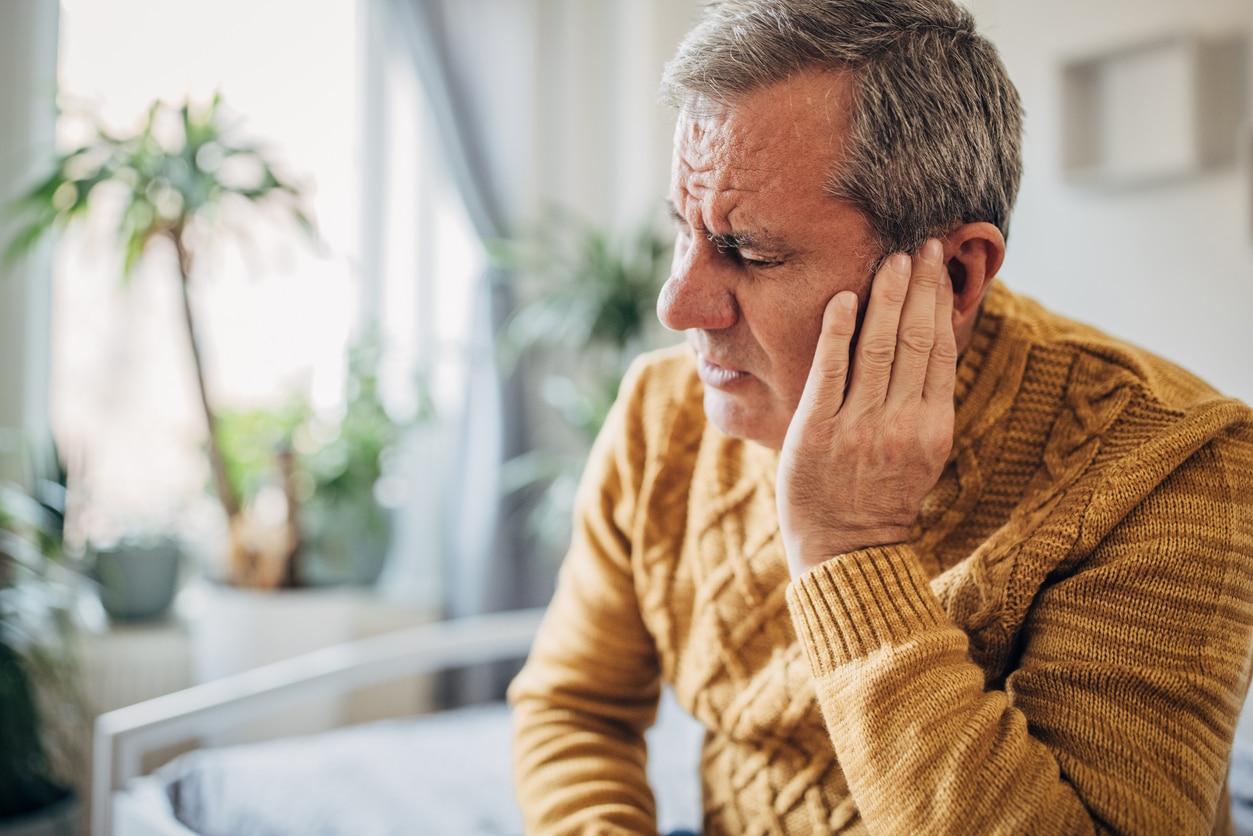Have you ever experienced a sharp pain in your ears when swallowing? It can be a perplexing and uncomfortable sensation. While you may be used to a sore throat or upset stomach putting a damper on the occasional meal, ear pain isn’t generally a concern. Let’s delve into a few reasons why you may feel pain in your ears during dinner and what you can do to prevent it.
Your Ears and Throat Are Connected
It’s essential to recognize the connection between the ears and throat to understand why your ears hurt when swallowing. The Eustachian tube, a small passageway that links the middle ear to the back of the throat, plays a crucial role in equalizing air pressure and draining fluid from the ears. When this balance is disrupted, discomfort can arise.
Certain conditions cause swelling or blockage in the Eustachian tube. Common conditions that may lead to ear pain include ear barotrauma, ear infections, sinusitis, allergies and temporomandibular joint disorder.
Ear Barotrauma

If the Eustachian tube fails to open and close properly, pressure can build up in the middle ear, leading to pain and discomfort. Ear barotrauma is one condition that can prevent the Eustachian tube from opening and closing. Ear barotrauma, or airplane ear, is common during ascent or descent on a flight. To help prevent severe barotrauma, try chewing gum during flights to help promote Eustachian tube function by encouraging muscle movements in the jaw and throat.
Ear Infections
Infections in the middle ear, such as otitis media, can cause inflammation and pain, which can worsen when swallowing. Your body can usually fight off middle ear infections in 2-3 days. If the infection lasts longer, your ENT specialist may prescribe antibiotics.
Sinusitis
When the sinuses become infected or inflamed, they can exert pressure on the Eustachian tube, resulting in ear pain during swallowing. Mild sinus infections will resolve themselves in a few days, but chronic or recurrent infections may require surgery or medication.
Temporomandibular Joint Disorder (TMJ):
Issues with the temporomandibular joint, which connects the jawbone to the skull, can cause pain when chewing, opening or closing the jaw and ear pain when swallowing. Some cases of TMJ go away on their own, while others may require medication, physical therapy or surgery.
Allergies
Severe allergies can cause inflammation in the nasal cavities and Eustachian tube, leading to pain when swallowing. If you notice that certain foods, environmental factors or activities exacerbate your symptoms, try to avoid or minimize exposure to those triggers (allergens). An allergy test is an excellent way to identify the specific allergens you’re sensitive to. For instance, if you’re sensitive to pollen, you may want to avoid Mill Creek Trail on high-pollen days.
If you’re experiencing persistent or severe symptoms, it’s always best to consult an ENT specialist for an accurate diagnosis and treatment. Contact Alpine Ear Nose & Throat PC today to make an appointment with one of our specialists.